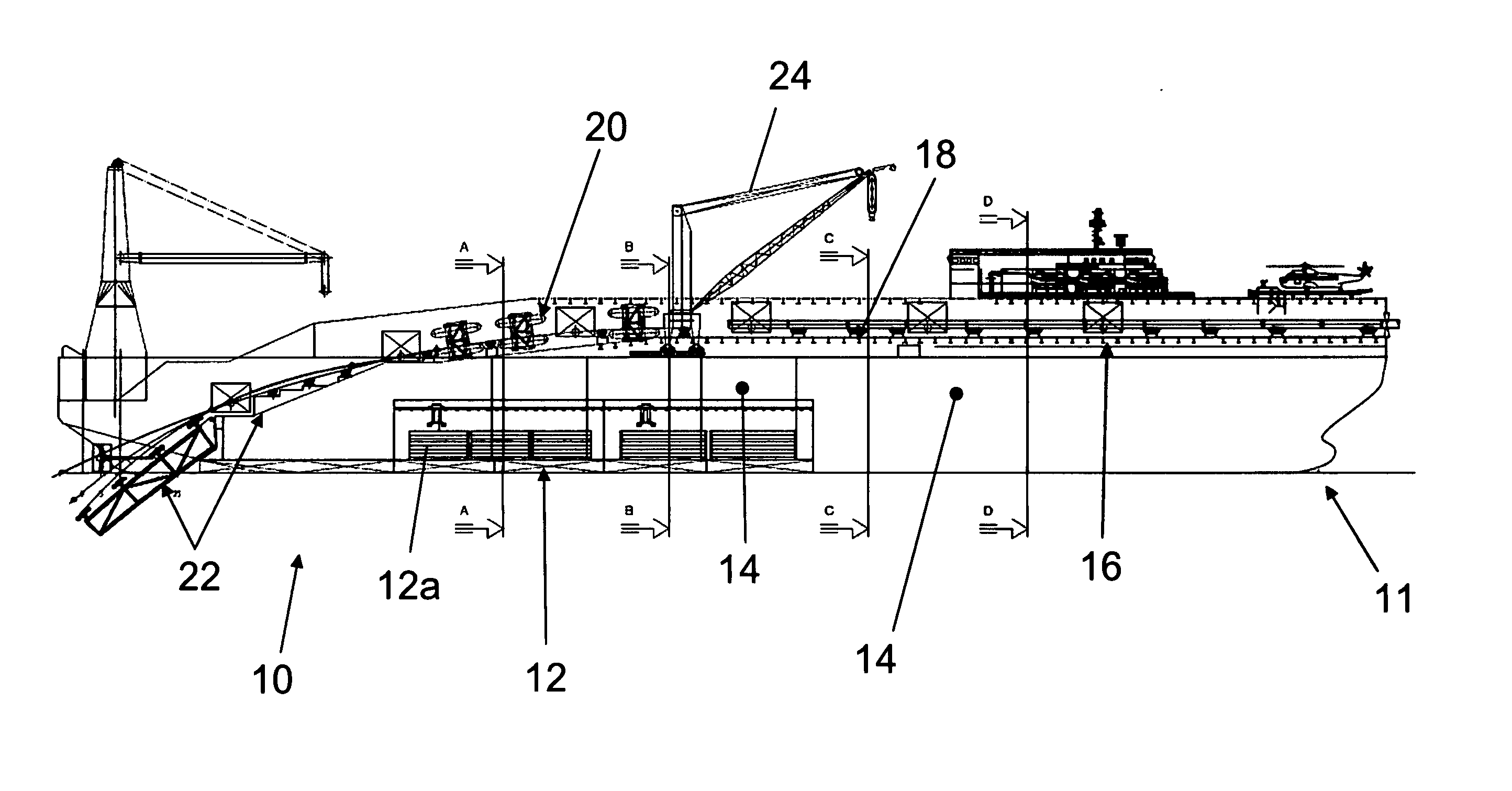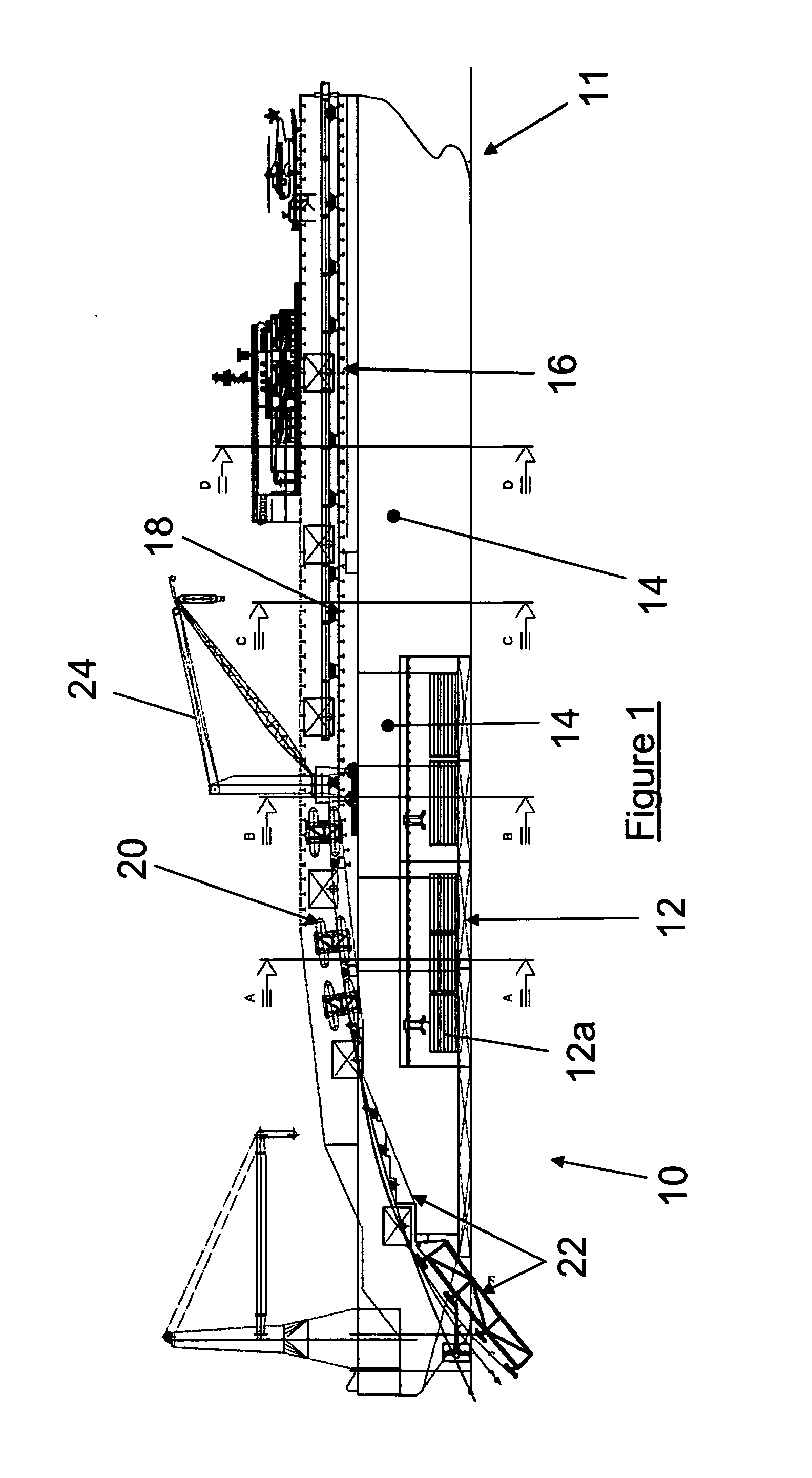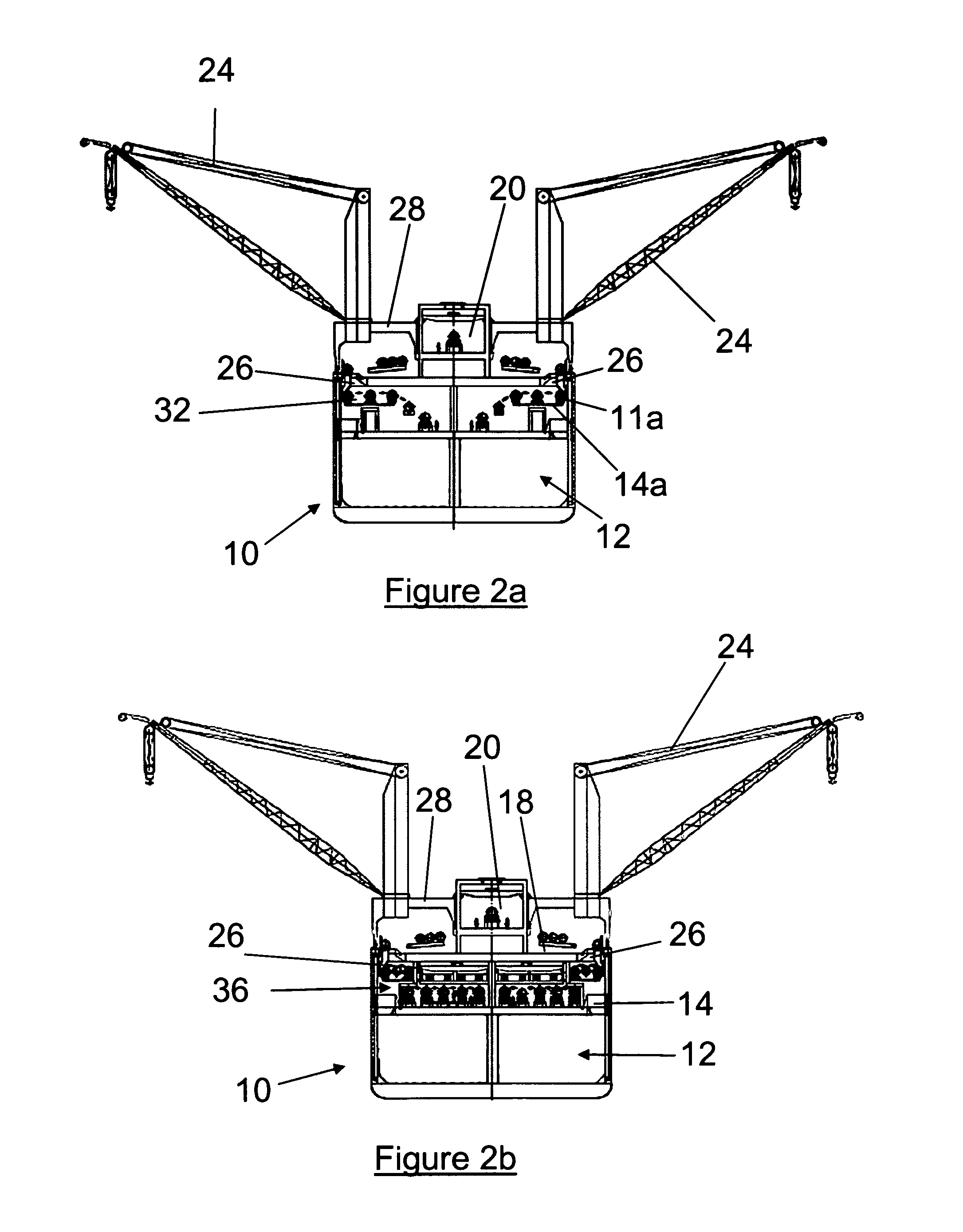Prefabrication of pipe strings on board of pipe-laying vessels
a technology of pipe strings and pipe laying, which is applied in the direction of pipe laying and repair, cable laying vessels, mechanical equipment, etc., can solve the problems of adversely affecting the production cycle time, achieve better and more efficient, reduce flexibility in pipe processing stations, and facilitate better utilization of space available across the width
- Summary
- Abstract
- Description
- Claims
- Application Information
AI Technical Summary
Benefits of technology
Problems solved by technology
Method used
Image
Examples
Embodiment Construction
[0111]FIG. 1 shows a narrow mono-hull pipelaying vessel 10 having a width of about 40 m on the main deck and a length of about 330 m. The vessel 10 is arranged to fabricate, assemble and lay pipeline from single length pipe sections (“bars”). Such single length pipe sections are stored in a storage area 12 in the vessel's hold. Single length pipe sections are transported, when required, from the storage area 12 to a pre-fabrication deck 14, where such single length pipe sections are welded together to form either double joint pipe sections or triple joint pipe sections. (The pre-fabrication deck 14 is hidden from view in FIG. 1). The pipe storage and prefabrication facilities on board the vessel are symmetrically repeated across the vessel, so that the port-side facilities may be considered as a symmetrical reproduction of the starboard-side facilities. The pre-fabrication deck 14 produces jointed pipe sections having a length of 36 metres. The 36 metre jointed pipe sections are tem...
PUM
 Login to View More
Login to View More Abstract
Description
Claims
Application Information
 Login to View More
Login to View More - R&D
- Intellectual Property
- Life Sciences
- Materials
- Tech Scout
- Unparalleled Data Quality
- Higher Quality Content
- 60% Fewer Hallucinations
Browse by: Latest US Patents, China's latest patents, Technical Efficacy Thesaurus, Application Domain, Technology Topic, Popular Technical Reports.
© 2025 PatSnap. All rights reserved.Legal|Privacy policy|Modern Slavery Act Transparency Statement|Sitemap|About US| Contact US: help@patsnap.com



